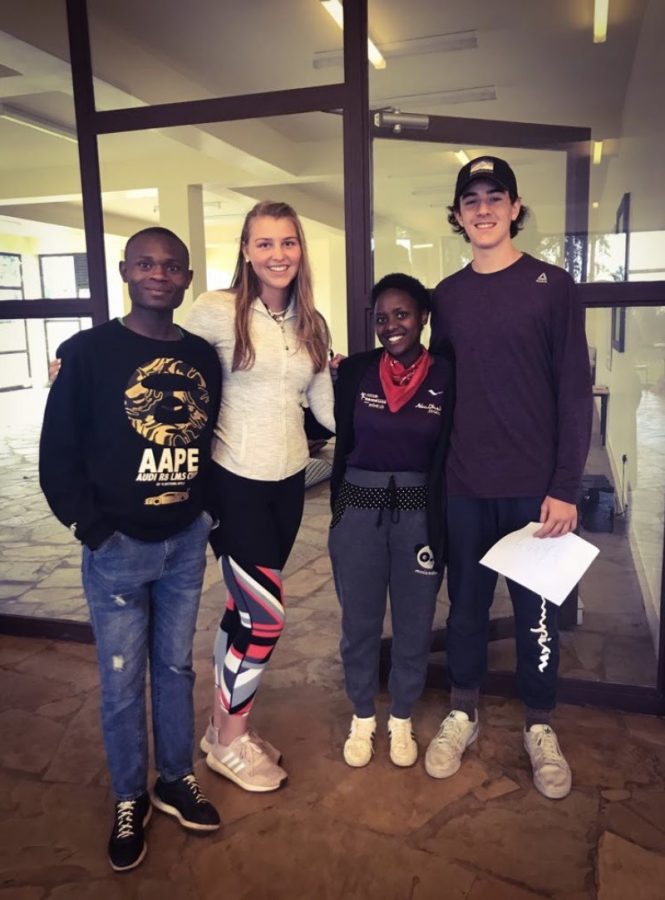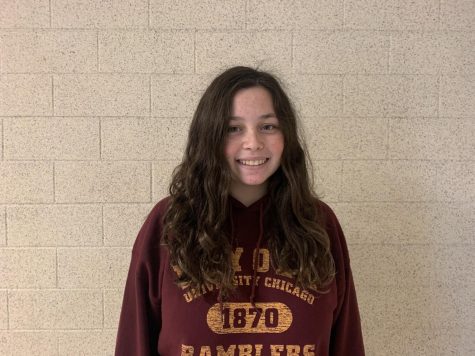Students build leadership skills in Kenya, explore different lifestyles
Sophomore Kiley Martin and Junior Philip Eppen with their Kenyan friends during a group activity.
May 7, 2020
Sophomore Kiley Martin and junior Philip Eppen spent 10 days in Kenya at a leadership conference last summer, learning about taking initiative and meeting other teens from various backgrounds.
On a trip to Kenya with her mom last March, Martin visited Flying Kites Academy, a K-8 free school of 130 students, in Njabini to learn about and understand Kenyan people and culture. Then, Martin was asked by a faculty member to return to Kenya over the summer for a leadership conference with teens from the United States and Kenya. She recruited Eppen, a close family friend, to join her at this conference.
“We learned a lot about the world and each other’s cultures,” Martin said.
The days started early, with classes about what makes a good leader and global interaction. The students also had free time where they could play games and talk with each other. There were 15 kids in the program: seven kids from the US and eight from Kenya.
“We had a lot of time just to interact and get to know one another because we all shared such different lifestyles,” Martin said.
Martin and Eppen recalled experiences that stood out to them during this trip and gave them insights into the way people see others.
“These were kids coming from the slums of Nairobi….just hearing the adversity they have to go through in their daily lives, all the stuff I’m protected from,” Eppen said. “It just put it in perspective that none of us really deserve to lead these affluent lifestyles at all.”
A Kenyan girl named Miriam invited Martin to her home, giving Martin the opportunity to observe her lifestyle. Martin was the only person at this conference invited back to someone’s home and given the opportunity to meet a family. Martin said Miriam’s family lived in a small house with a lot of surrounding land where everyone pitches in to grow food and raise livestock.
“It was eye-opening…how close her family is,” Martin said. “I just was so excited to be invited and felt so honored to have an invitation to see their home.”
Eppen remembered a conversation with a boy named Seby from Nairobi in which they discussed racism and Seby’s interest in racism in the United States.
“He was really surprised, and he asked me how people can see themselves as superior to other people based on the color of their skin,” Eppen said.
Martin and Eppen walked away from this extraordinary experience with newfound leadership skills and connections with people who lead completely different lives.
“You can realize how similar people are based on their differences,” Martin said. “We’re a lot closer than we might have imagined.”










